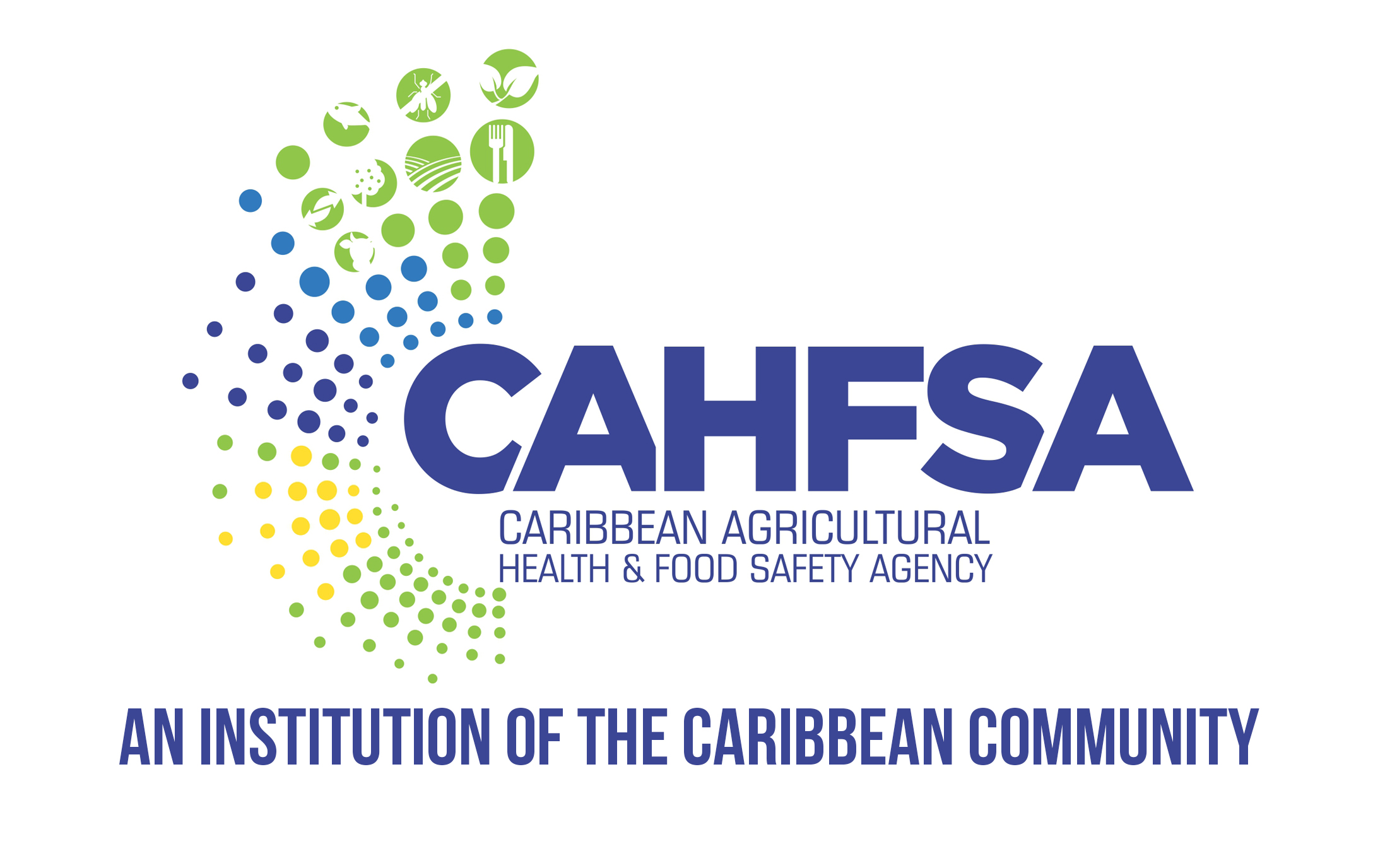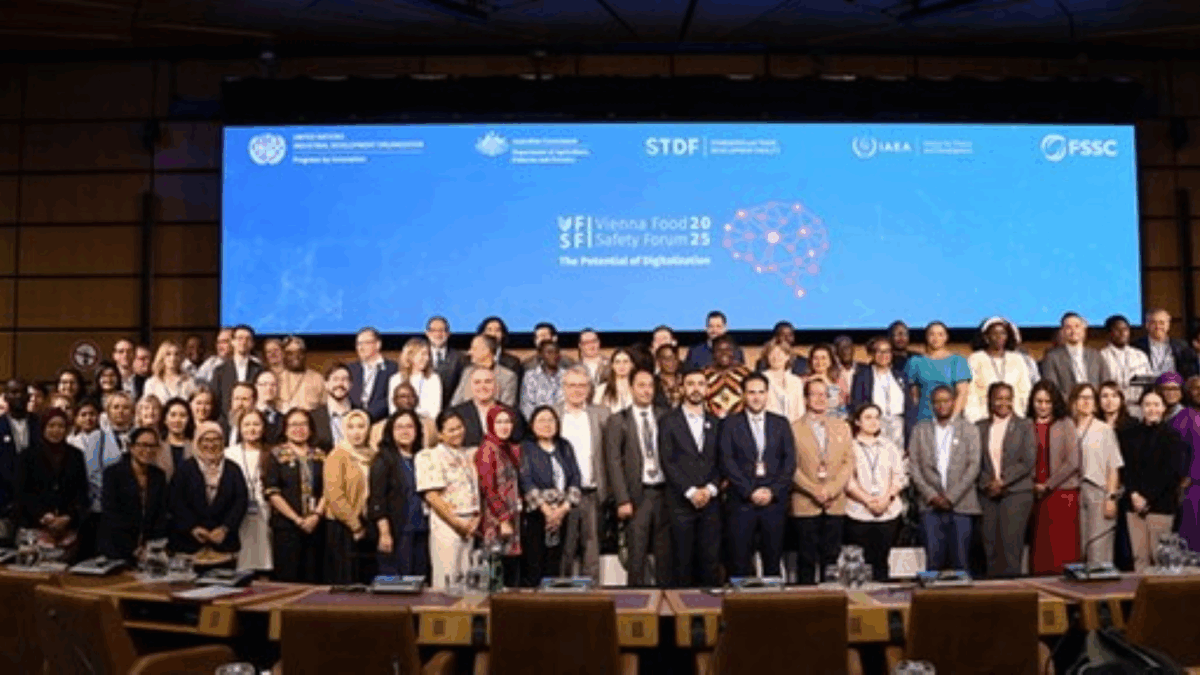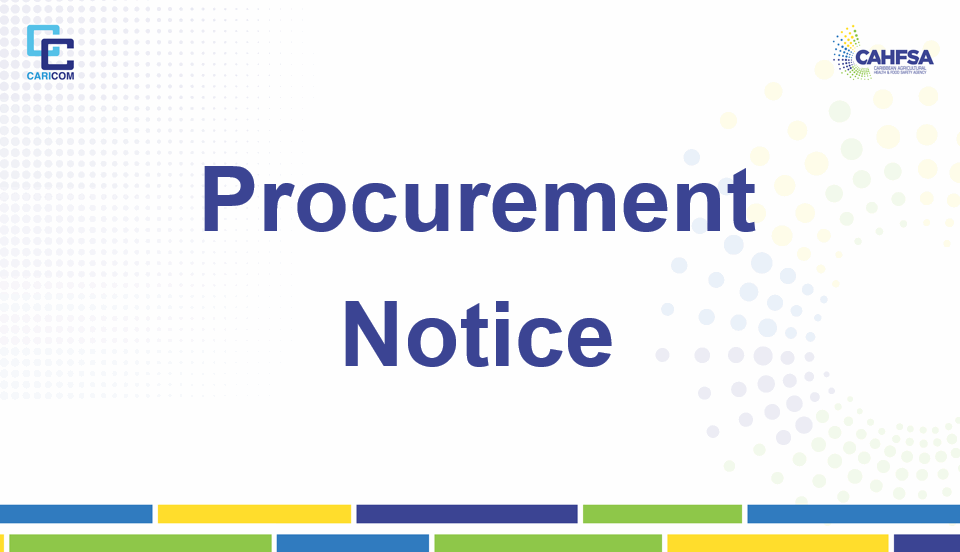
Tribute to a Stalwart of the Caribbean Veterinary Community: A Kind, Gentle, Wise and Remarkable Soul – Dr. Pastor Alfonso
June 11, 2025
CALL FOR NOMINEES: The Suzan McLennon Miguel Caribbean Antimicrobial Resistance Leadership Award: Recognizing commitment and achievements in AMR
June 19, 2025CAHFSA Participates in Vienna Food Safety Forum 2025
Spotlight on "The Potential of Digitalization" in Agri-Food Safety Systems
Date: June 10 – 12, 2025
Location: Vienna International Centre, Vienna, Austria
Overview
The Caribbean Agricultural Health and Food Safety Agency (CAHFSA) proudly participated in the Vienna Food Safety Forum 2025, held 10–12 June 2025 at the United Nations Industrial Development Organization (UNIDO) headquarters in Vienna, Austria. This global forum, organized by UNIDO, in collaboration with the Standards and Trade Development Facility (STDF), Australia’s Department of Agriculture, Fisheries and Forestry (DAFF), the International Atomic Energy Agency (IAEA) and the FSSC Foundation, convened over 300 participants from more than 75 countries. The Forum's theme — “The Potential of Digitalization” — focused on exploring digital innovation, data-driven solutions, AI, electronic certification, and remote audit for stronger food safety systems and trade. We extend sincere thanks to the Standards and Trade Development Facility (STDF) for enabling CAHFSA’s participation
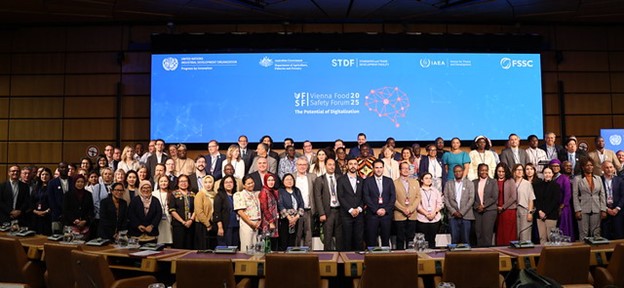
World Participants at Vienna Food Safety Forum 2025
Program Highlights
Day 1: Global Leadership and Digital Commitment
The Forum opened with high-level keynotes, including a compelling address by UNIDO Director General Dr. Gerd Müller, who called for greater investment in digital transformation and technology transfer to strengthen food safety systems, particularly in developing and small island nations. Emphasis was placed on equity in access to innovation and the need for collaborative global action to close digital divides in the agri-food sector.
Day 2: Deep Dive into Digital Systems
The second day focused on practical applications of digital tools, with expert panels discussing:
- Digital traceability systems for real-time monitoring of food chains
- Public-private data sharing models to strengthen transparency and risk management
- Implementation of electronic SPS certification platforms, such as ePhyto and eVet, to streamline compliance and trade facilitation
Presenters shared country case studies and highlighted interoperability challenges, infrastructure needs, and legal enablers.
Day 3: Innovation Showcases and UNIDO’s Food Safety 2.0
The final day featured demonstrations of:
- Machine learning (ML) and AI models to predict and detect food safety risks, including Food Fraud.
- Remote auditing technologies enabling oversight without in-person inspections
- The official launch of UNIDO’s Food Safety Approach 2.0, a modern framework incorporating digital tools, AI, and Food Authenticity Testing to build agile, transparent, and efficient food control systems globally.
Significant Discussions Relevant to the Caribbean
- AI–Empowered Solutions for Primary Producers
Deliberations underscored how AI can revolutionize documentation, real-time recordkeeping, and traceability—areas often problematic for Caribbean primary producers and exporters.
- Driving Trade via Digitalization & Preclearance
Discussions emphasized the need for transparency, electronic certification, and digital traceability to actualize a Regional Preclearance Mechanism, integral for smoother intra-regional trade and SPS compliance.
- Embedding Food Safety Culture
Experts asserted that digital systems are only as effective as the culture supporting them—including leadership, accountability, and alignment across sectors.
- Bridging Digital Competency Gaps
The Forum highlighted the critical shortfall in digital and AI competencies in developing regions. Closing this gap requires investment in curricula, training, and upskilling of stakeholders to sustain SPS and food safety systems.
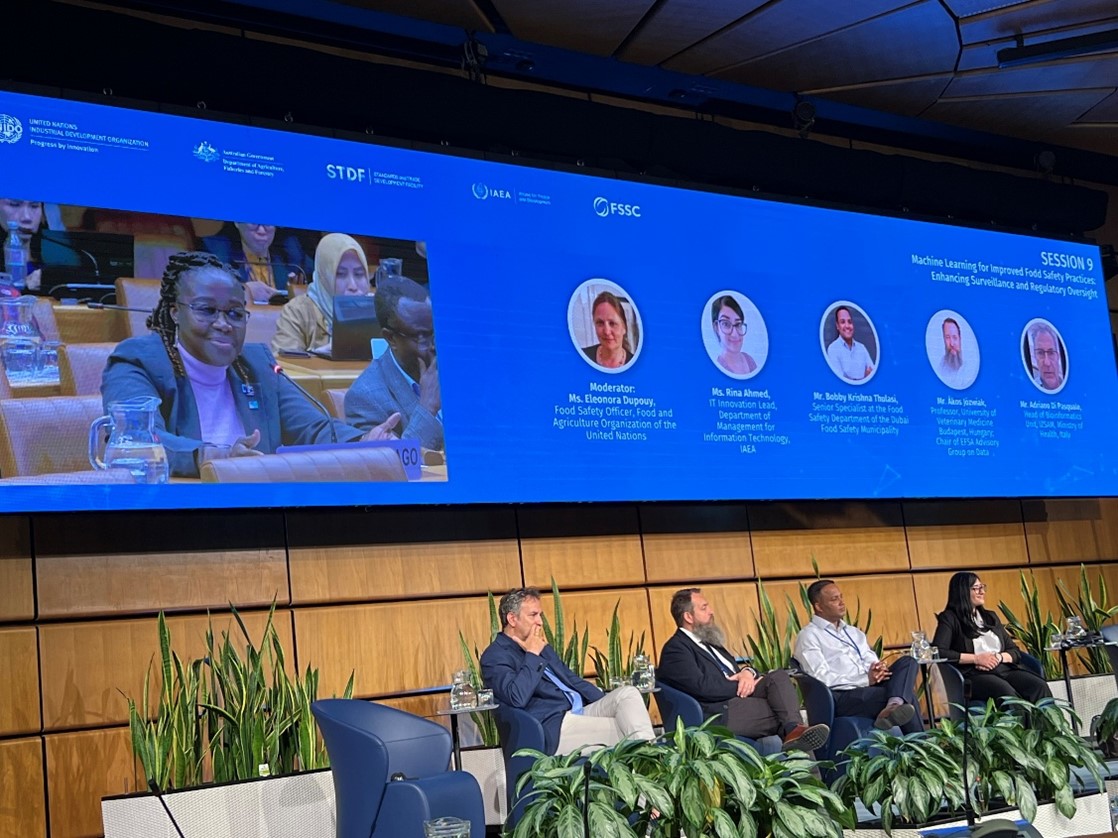
The Food Safety Specialist at CAHFSA provided remarks on the FAO/IAEA Centre’s technical training in Nuclear Technologies for Food and Agriculture offered to Caribbean countries, highlighting its significance in advancing the establishment of a Regional Centre for Food Authenticity Testing.
Key Themes & Takeaways
- Digital traceability and data sharing are vital for trust, risk management, and supply chain resilience. Digitalization is essential, not optional, for resilient, trade-ready systems.
- AI and ML technologies offer automated inspection, risk assessment, and surveillance, but face challenges such as data quality, ethical use, and competency shortages. Countries must invest in training, harmonization, and infrastructure.
- Remote and electronic certification, including ePhyto and e-Vet schemes, can streamline SPS compliance—however, interoperability, infrastructure investment, and legal frameworks are prerequisites. AI tools should be tailored to the Caribbean context—supporting micro- and small-scale producers.
- The new Food Safety Approach 2.0 encapsulates these digital advancements, including Food Authenticity Testing and digital traceability as foundational to modern national food control.
Regional Impact in the Era of Digital Food Safety
CAHFSA supports the forward-looking nature of digital transformation and the need to:
- Accelerate Digital Traceability Systems
- Support regional pilot projects (e.g., QR code labeling, blockchain) to improve supply chain transparency and rapid response capabilities.
- Promote e-SPS Certification & Preclearance
- Advocate for adoption of ePhyto/e-Vet platforms and collaborate to advance the Regional Preclearance Mechanism, ensuring cross-border compatibility, simplified compliance and readiness for electronic certification systems.
- Enhance AI-based Risk Tools
- Invest in or pilot AI-powered systems for risk profiling, predictive analytics, and surveillance at ports, labs, and farms—tailored for Caribbean conditions and capacity.
- Bridge Technical Capacity Gaps
- Facilitate capacity building in digital skills and AI for regulators, labs, and primary producers.
- Scale up training initiatives targeting digital literacy, data governance, and AI ethics in its application.
- Cultivate a Digital-First Food Safety Culture
- Engage stakeholders through awareness campaigns, public-private partnerships, and harmonized policies to institutionalize data-driven practices.
- Assess & Upgrade Infrastructure
- Evaluate regional infrastructure needs—connectivity, interoperable platforms, and institutional readiness—to support digital transformation.
CAHFSA reaffirms its commitment to leading the Caribbean’s digital transformation in food safety, as well as, in animal and plant health. Informed by insights from the Vienna Food Safety Forum, CAHFSA will focus on advancing digital traceability, electronic certification, AI-driven solutions, and regional capacity building. This will be supported by efforts to strengthen enabling systems, including policy frameworks, digital infrastructure, and a strong food safety culture. Collaboration with partners such as FAO, UNIDO, IAEA, STDF, Codex, regional laboratories, and the private sector will be key to establishing a modern, resilient, and inclusive food safety framework for the Caribbean.
